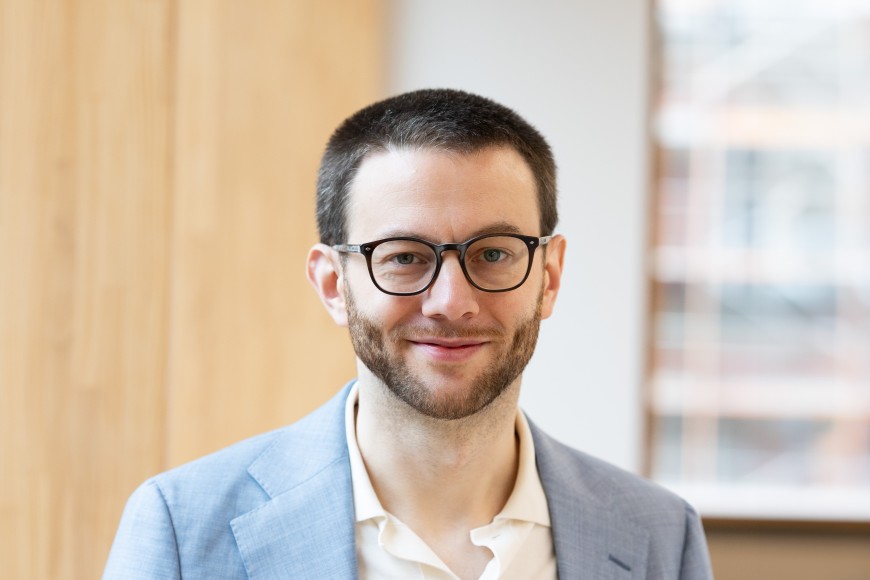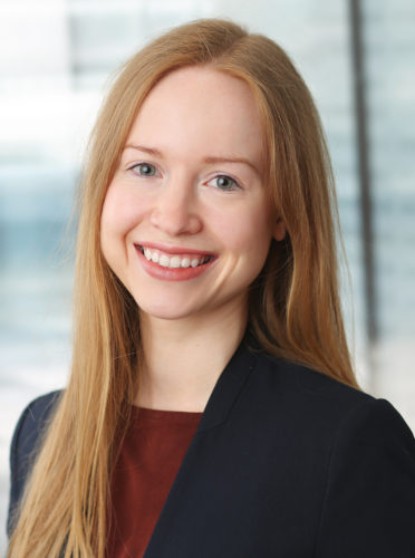New substitute professor: Marc-André Kaufhold
Knowledge Engineering
2024/10/30
Dr Marc-André Kaufhold has been a substitute professor for Knowledge Engineering at the Department of Computer Science since October. Marc-André graduated from the University of Siegen with a Master's degree in Information Systems in 2016. He started his academic career as a research assistant in the field of computer-supported group work and social media. Subsequently, he was a PhD student at the Graduate School for Sustainable and Responsible Business at the University of Siegen until 2017, and completed his PhD in 2020 with summa cum laude at the research group Science and Technology for Peace and Security (PEASEC) at TU Darmstadt. His research focused on user expectations and design principles for social media and mobile applications in crisis situations. He has been a postdoctoral researcher at PEASEC since July 2020, and will start his habilitation in the Department of Computer Science in May 2023. He answered a few questions about his start.

What is you research about?
My interdisciplinary research focuses on the user-centred design and evaluation of AI algorithms, mobile applications and public media in the context of crisis and security research. In the application areas of cybercrime, cybersecurity and crisis informatics, I investigate how authorities and organisations with security tasks can be supported in identifying relevant information to improve their situational awareness, how the detection of cyberbullying, misinformation and hate messages can be improved, and how citizens can be empowered to prevent and respond to incidents in real and virtual space. My research is mainly published in Computer Supported Collaborative Work (CSCW), Human-Computer Interaction (HCI) and Information Systems (IS) conferences and journals.
Why should students be interested in your topics? / What is exciting about your topics?
Since the terrorist attacks of 11 September 2001 and the increasing spread of social media, it has become clear that citizens use them not only to exchange information in everyday life, but also actively in crisis situations to support damage management by professional emergency services. Social media can provide up-to-the-minute information on the situation (photos, videos, text), emotional and financial support for those affected, and the mobilisation of helpers across local borders. However, its use also poses challenges.
The sheer volume of data published in the public media during major emergencies, combined with deliberate misinformation and outdated information, makes it difficult for emergency services to identify relevant information, integrate it into their situational awareness and communicate it to citizens. Such problems are not only relevant to crisis informatics, but can also be explored in a modified form in the areas of cybercrime (e.g. identifying and reporting cyberbullying and hate messages) and cybersecurity (e.g. identifying relevant vulnerability information for one's own organisation).
As part of civil security research, I am therefore investigating the design of usable solutions using AI algorithms to support the situational awareness and decision making of emergency services and citizens in emergency situations. What is particularly exciting here is that the potential societal added value is intuitively understandable and practical research is possible by involving users in the iterative design of technologies through empirical preliminary studies and evaluation sessions.
Interdisciplinarity is very important at TU Darmstadt. Where are the interfaces to other disciplines in your field of work?
My research at the Department of Computer Science would not be possible without an interdisciplinary approach. Conducting qualitative interviews and quantitative surveys requires expertise in the humanities and social sciences in order to adequately capture relevant social and organisational practices in the application domain and incorporate them as requirements in the design of technologies. The design and evaluation of these technologies then incorporates methodological approaches from Human-Computer Interaction and Business Informatics, which by their very nature are highly interdisciplinary, e.g. from the social, information and economic sciences.
In which TU department or subject area would you like to spend a day? And why?
While in Crisis Informatics I am inevitably confronted with the consequences and adaptation to climate change, I am also interested in measures for the long-term mitigation of climate change, where there are exciting projects, for example in the Department of Civil and Environmental Engineering, that could broaden my research horizons. Apart from my research and to reactivate interests from my student days, I would certainly enjoy a day at the Department of Physics, especially in Astrophysics and with a visit to the TURM Observatory.
If I were a student today, I would…
… have access to a completely different wealth of experience and new perspectives that were not initially available to me as a working class child. I would definitely consider studying at a university further away from where I was born and I would emphasise a semester abroad, e.g. on a Masters course, in order to immerse myself in other local working, research and living cultures over a longer period of time. Looking back, I am happy with my decision to study Business Informatics, as its interdisciplinary nature allowed me to explore and specialise in a variety of options, to get to know my preferences, and finally to apply as a student assistant to a suitable chair, which is how I found my way to a PhD in Crisis Informatics.
The best balance to a stressful working day is…
… individually tailored to the day, e.g. an active or relaxing excursion into nature, broadening your culinary horizons, an interactive or immersive media experience, spending time with your favourite people.
The questions were asked by Anne Grauenhorst.

